Spotlight on: Jessica Hausner
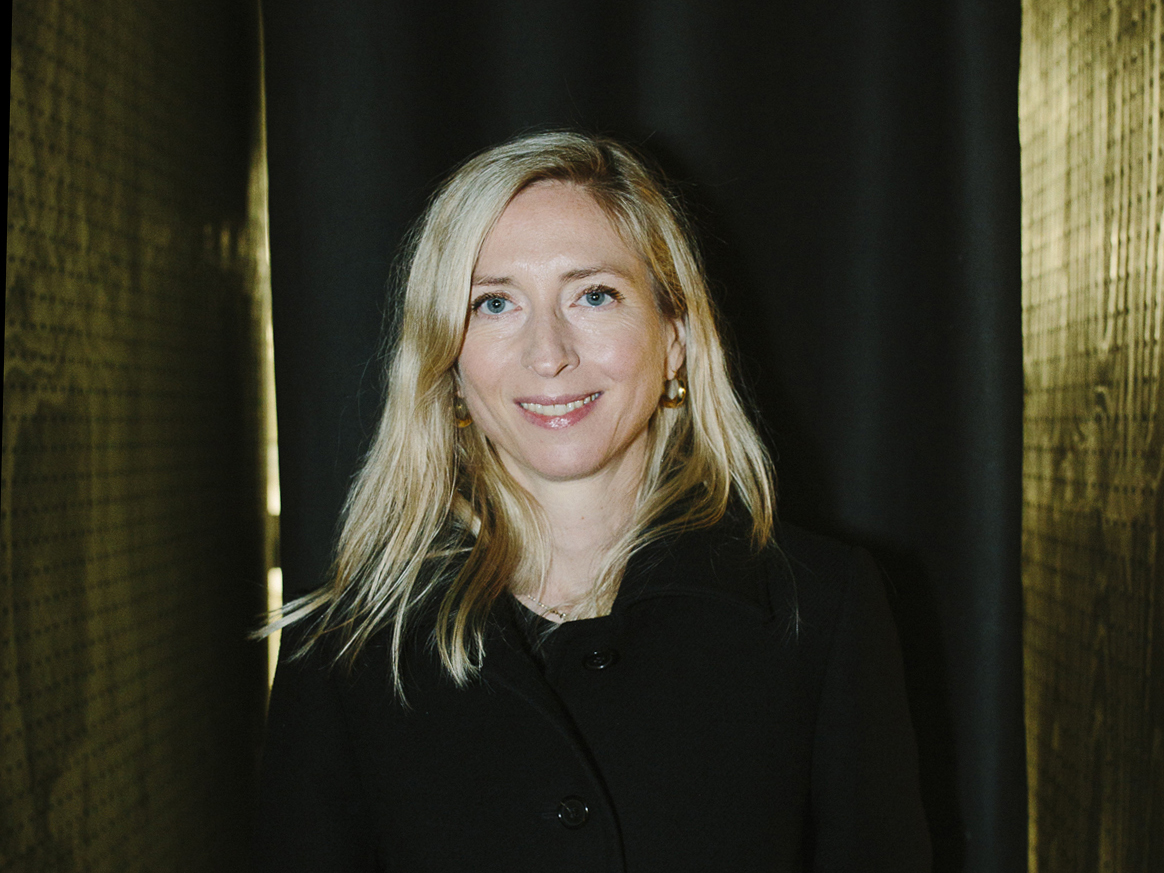
Jessica Hausner © Diagonale/Niko Havranek
With the Spotlight on series, the Diagonale’21 turns its focus on the director Jessica Hausner and her widely acclaimed film oeuvre. Beginning from her most recent film Little Joe, which was the only Austrian entry represented in the competition at the Cannes film festival, the Diagonale’21 will show a comprehensive retrospective of Hausner’s oeuvre including the rediscovery of her early works as a film student. After the cancellation of the Diagonale’20, the program of Spotlight on: Jessica Hausner, supplemented by the music video Attwenger – ersoundsieso (AT 2021) and a book presentation, can finally be seen in the cinema in June 2021.
Accompanied by in-depth conversations with Jessica Hausner and her companions, the film program illustrates how Hausner, who was appointed as the first female professor for directing at the Film Academy Vienna in 2020, thinks about film and cinema.
For the fifth time, the Spotlight on series will thereby trace the individual stages and passages of recent Austrian film history along a prominent biography and artistic oeuvre.
Complex, artful, prize-winning
Feature films with terse handwriting
Right from the start, Jessica Hausner’s films have seemed unconventional. One of her most noteworthy stylistic means is the “strangely uninvolved, distanced gaze at the characters and their endeavors,” explains film critic Dominik Kamalzadeh in an essay about Hausner’s work, which was published in the Diagonale’20 catalogue. Hausner’s early works created at the Viennese Film Academy already herald this distinctive gesture. Even though the coming-of-age short Flora (AT 1996) and the fifty-minute Film Academy graduation work Inter-View (AT 1999) still appear deeply bound to the real (youth) milieu of the 1990s, as Kamalzadeh continues, evident here, too, is the “characteristic relativizing moment of her films, an imponderableness in view of the characters and their predicaments.” Hausner would go on to emphasize this ambiguity in her staging ever more strongly over the years and thereby advance to become the “most important international Austrian filmmaker of the present day.”
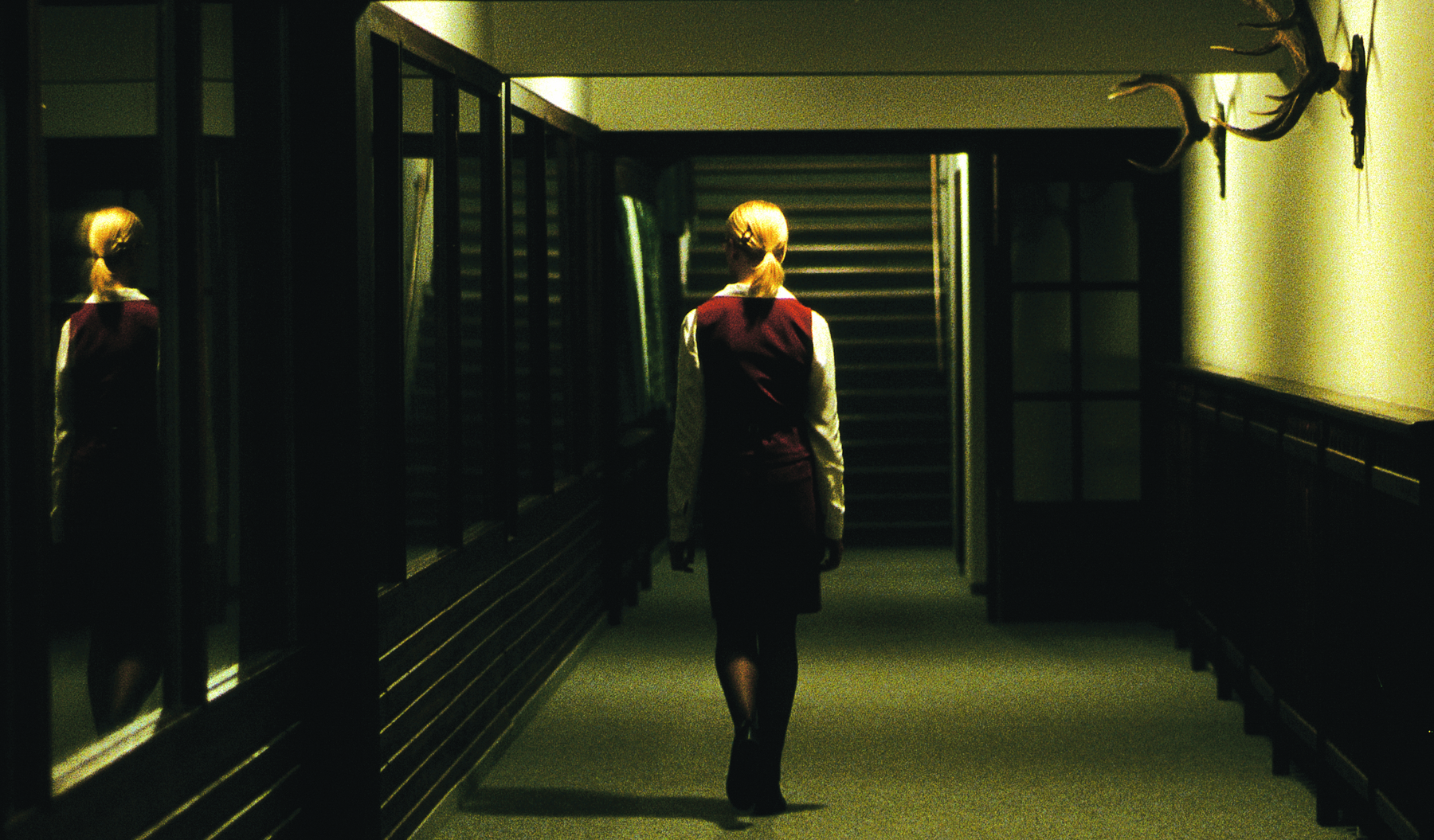
Hotel © coop99
From the Viennese Film Academy to Cannes and Venice – and back!
Jessica Hausner, whose films always also have the courage to leave narrative gaps, was born in Vienna in 1972 and studied film directing at the Film Academy Vienna. Already her short film Flora received a “Leopard of Tomorrow” award at the international film festival Locarno, Inter-View was honored in 1999 in the context of the Cinéfondation at the film festival in Cannes. In the same year, Hausner co-founded the production firm coop99 together with Barbara Albert, Antonin Svoboda, and Martin Gschlacht. Her first premiere in Cannes laid the tracks for her international career. For example, just a few years later, both her debut feature film Lovely Rita (AT/DE 2001) as well as the thriller Hotel (AT/DE 2004), for which Hausner wrote the screenplay herself, were presented in the “Un Certain Regard” series in Cannes. In Lovely Rita, the filmmaker takes up the coming-of-age theme of her short Flora and with her story about a pubescent girl who overburdens everyone with her sexuality, exposes the lack of relationships in everyday life. Lovely Rita was, furthermore, the first production by the coop99 film production. At the center of the psycho-thriller Hotel, for its part, is the receptionist at a mountain hotel whose fate begins becomes interwoven with that of her predecessor who disappeared under mysterious circumstances.
Five years after Hotel, Jessica Hausner and her established team realized the drama Lourdes (AT/FR/DE 2009), which had its world premiere in the competition of the international film festival in Venice and was honored with the FIPRESCI prize. Once again, Hausner wrote the screenplay herself about the miraculous healing of Christine (Sylvie Testud), afflicted with multiple sclerosis, who travels to the pilgrimage site Lourdes and can suddenly walk again. Hausner’s next film, Amour Fou (AT/LU/DE 2014), brought her back to the festival series “Un Certain Regard.” The film, which deals with the tragic biography of the German writer Heinrich von Kleist, celebrated its premiere in Cannes. The historical setting of the narrative demanded an elaborate production and costume design. A special challenge for outfitter Katharina Wöppermann and costume designer Tanja Hausner, the filmmaker’s sister and steady companion. A further highlight in Hausner’s career was the premiere of her sixth feature film, Little Joe (AT/DE/UK 2019), this time in the competition of the film festival in Cannes. The futuristic sci-fi fairy tale, which tells of a genetically manipulated plant whose odor infects people and makes them happy, is Hausner’s first film in English. The main actress, Emily Beecham, was honored at the Croisette for her performance and awarded a Golden Palm. The sounds in Hausner’s work, which alternates between psycho-thriller and horror drama, go back to her revered Japanese avant-garde composer Teiji Ito. In 2020, Jessica Hausner was appointed as the first female professor for directing at the Film Academy Vienna.
Women characters between imagination, self-will, and reality
At the center of Hausner’s works are always women characters who through their endeavors and at times, also their well-concealed needs, run the danger of becoming isolated from their social environments. In this, they are thoroughly self-willed in the face of life’s uncontrollability. “The films do not appropriate their heroines, they work mischievously against narrative harmonies and certainties,” attests film journalist Dominik Kamalzadeh in the previously mentioned essay.
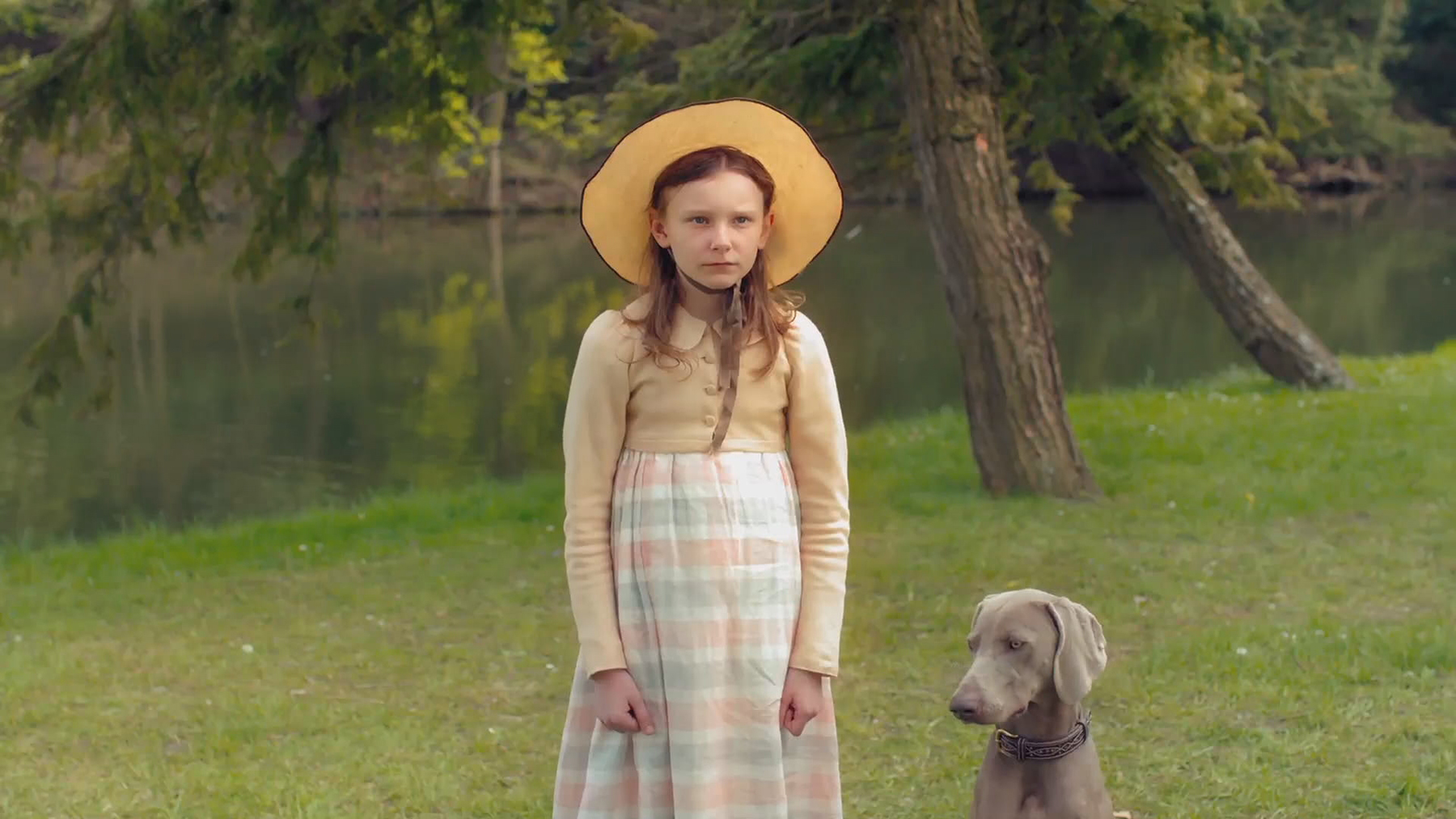
Amour Fou © coop99
The art of artificiality
From camera to costume
As her oeuvre continues, Hausner moves more decidedly away from naturalism: The artificiality of her cinema is rigorously planned, the camera by Martin Gschlacht likes to guide the viewers’ gaze awry. Also, the settings, colors, and no least the costumes by Tanja Hausner – for Amour fou, for example, in collaboration with the hat manufacturer Mühlbauer – emphasize the gaps that open between the characters, their ideas, and the real world. (see Dominik Kamalzadeh, “Lücken, die das Leben lässt,” essay in the Diagonale’20 catalogue, in German only)
Hausner’s cinema
From Menken to Deren and Hammid, from Teiji Ito to Attwenger
The compilation of the series makes visible how Jessica Hausner conceives of film and cinema and the influences that have become noticeable in her hitherto creation. Shown in addition to her own films, will be two key works from the U.S. avant-garde by Maya Deren and Marie Menken. Like Hausner in her most recent film, Little Joe, both use the music of the legendary Japanese composer Teiji Ito.
The program will be complemented by an extensive Diagonale im Dialog following the screening of Little Joe and a Listening Session with Jessica Hausner and musician Markus Binder (Attwenger), in which both talk anecdotally about their aesthetic views and personal preferences while listening to selected tracks of their favorite music.
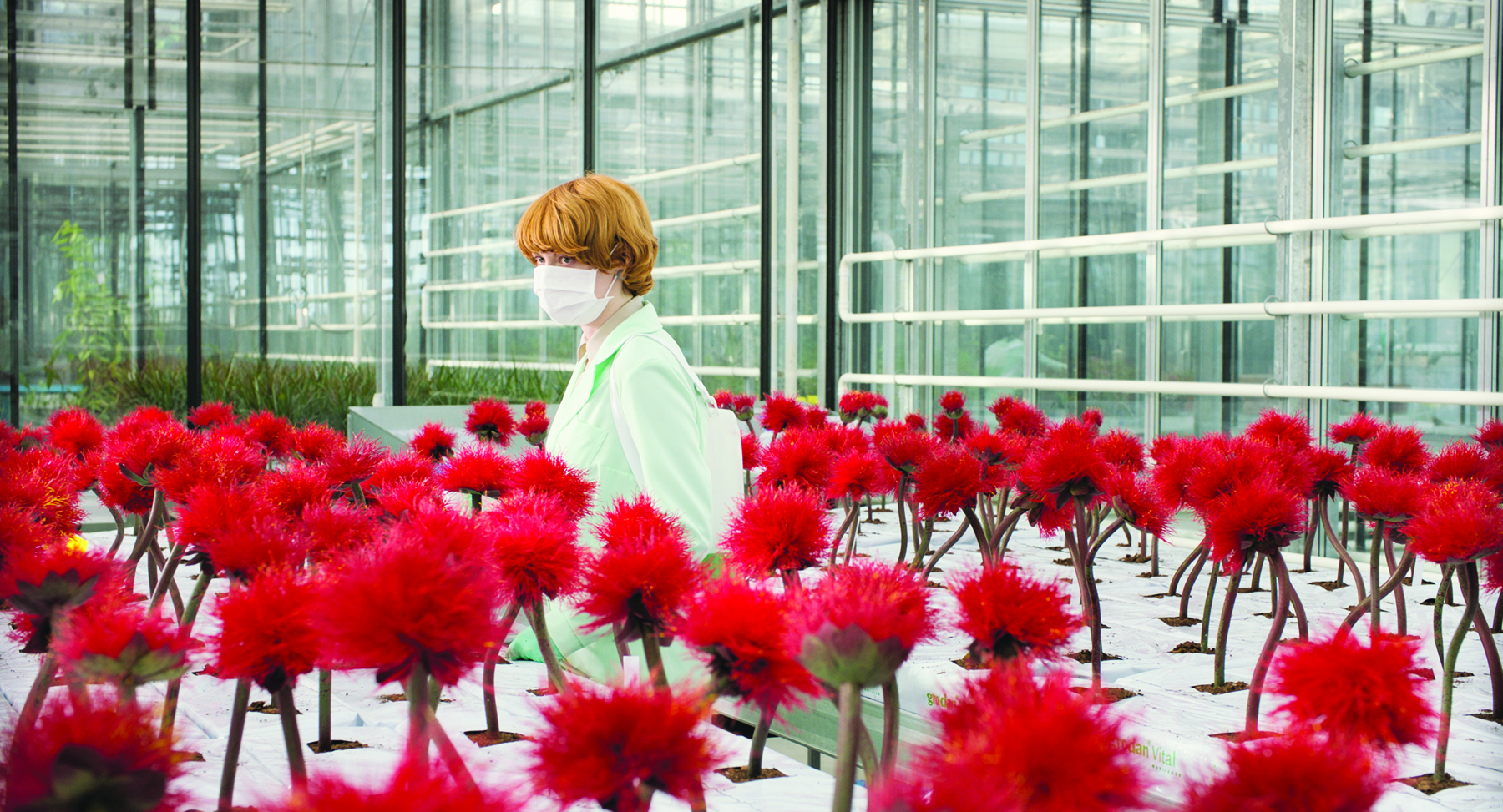
Little Joe @ coop99/The Bureau/Essential Films
“Jessica Hausner’s cinema is enchanting, captivating, at times unsettling – in the most fascinating and thereby best sense of the term. Her films are always elaborately designed, meticulous, thought through to the most minute detail, and precisely assembled. The viewers’ spellbound gaze wants to positively linger on every individual sequence: in the dining hall in Lourdes, along the plant beds in the green houses in Little Joe, in the tidied corridors in Hotel. Through the interaction of camera and precisely choreographed characters, whose frequently stylized appearances are, at the same time, expression and reflection of the staged milieu, they all become distinctive Hausner scenes. Hausner’s cinema counters distraction – which is one of the filmmaker’s greatest claims to fame – and for all its rigor, her works are often highly pleasurable and filled with humor. Her cinema responds to the current fetish for authenticity with confidence and immense artificiality, and is thereby capable of more accurately describing the nature of our world – and of criticizing it.”
— Sebastian Höglinger und Peter Schernhuber
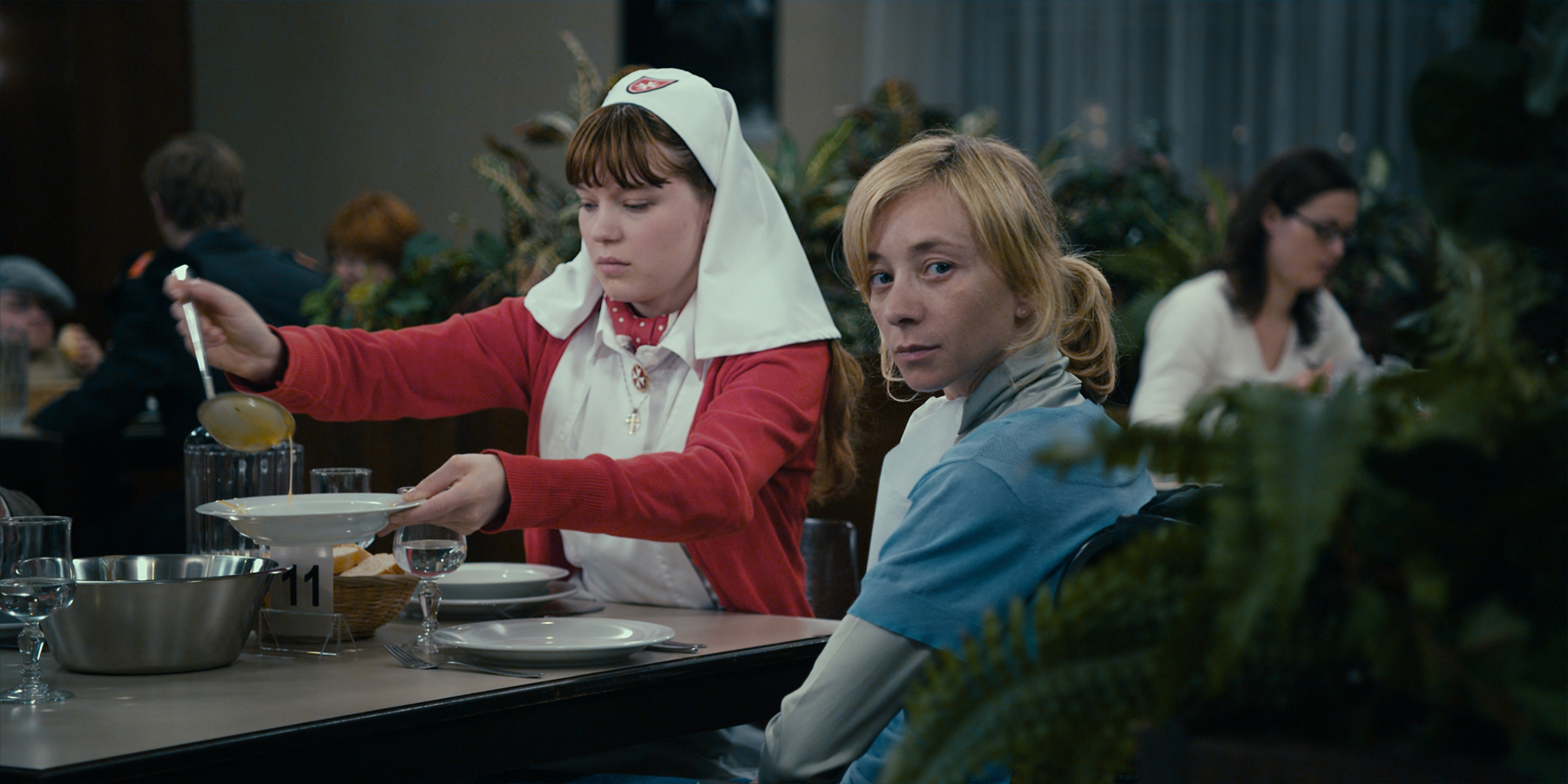
Lourdes © coop99
Film list for Spotlight on: Jessica Hausner
— Little Joe (D: Jessica Hausner, AT/DE/UK 2019)
— Supporting intro film: Meshes of the Afternoon
(D: Maya Deren, Alexander Hammid, US 1943, sound by Teiji Ito 1959)
Hotel (D: Jessica Hausner, AT/DE 2004)
— Supporting intro film: Attwenger – OIDA (D: Jessica Hausner, AT 2015)
Supporting intro film: Attwenger – Rhapsodariddim (D: Jessica Hausner, AT 2017)
Supporting intro film: Attwenger – ersoundsieso (R: Jessica Hausner, AT 2021)
Inter-View (D: Jessica Hausner, AT 1999)
Ich möchte sein manchmal ein Schmetterling (D: Jessica Hausner, AT 1993)
— Amour fou (D: Jessica Hausner, AT/LU/DE 2014)
— Lovely Rita (D: Jessica Hausner, AT/DE 2001)
Supporting follow-up film: Flora (D: Jessica Hausner, AT 1996)
— Supporting intro film: Arabesque for Kenneth Anger (D: Marie Menken, US 1961)
Lourdes (D: Jessica Hausner, AT/FR/DE 2009)
— Toast (D: Jessica Hausner, AT 2006, Diagonale’06 trailer)
The trailer version of Toast will be shown before all screenings in the Spotlight on: Jessica Hausner series.


